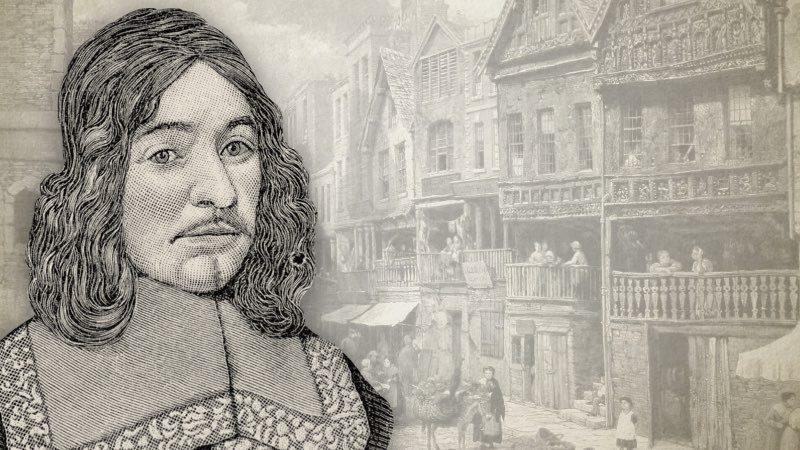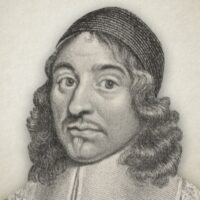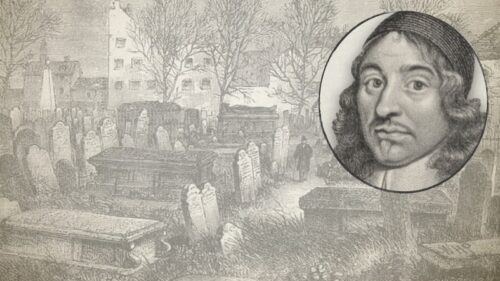
The Life And Ministry Of William Kiffin
Earthen Vessel 1902:
In 1616 (in the reign of James I.) there was a mixed Protestant Dissenting church gathered in Broad Street, Wapping. Some of these good people were Baptists. The first pastor chosen by the mixed congregation was one Henry Jacob, an Independent—though even he eventually became a Baptist. Years passed (as they have a habit of doing), and Mr. John Lathrop became pastor of this old-time “Union” church. It was during Mr. Lathrop’s ministry that the friends who held believers’ baptism to be the only Scriptural order sought and obtained a peaceable and honourable dismissal from the mixed communion; whereupon they were formed into a distinct church on purely Baptist principles, and met regularly for worship in Old Gravel Lane, Wapping, the date of the formation of the church being September 12th, 1633.
One of their number, Mr. John Spilsbury, was chosen as the first pastor. The doctrine taught was Particular Redemption, but the practice observed in relation to the Lord’s Supper was Open Communion.
About this time there were other secessions from the first-mentioned mixed assembly. So many were baptized, that “Mercurius Aulicus,” a journalist of that period, wrote in March, 1643:—
“And the River Lee, which runs by Bow, wherein the new elect re-baptize themselves, aud call it by the name of Jordan.”
Amongst these other seceders of whom I speak were William Kiffen (father of the Strict and Particular Baptists) and Thomas Wilson.
[Here I must make a most important digression. Kiffen and Wilson, when they left the “mixed” gathering, joined with the “Old Gravel Lane” Church. I have said that this church, though avowedly Baptist, admitted other than baptized believers to fellowship; but when they went still further, and invited unbaptized preachers to occupy their pulpit, William Kiffen objected, withdrew, and, in the year 1638, founded the FIRST STRICT BAPTIST CHURCH IN LONDON!! That is to say, the first Baptist church holding and teaching Particular Redemption, and confining church membership and the Lord’s Supper to baptized believers of the same faith and order. This was the famous Devonshire Square church. By reason of railway extension and Metropolitan changes, in the year 1871 this church removed to the high road, Stoke Newington, North of London, where it possesses fine, commodious buildings has large congregations, a church-roll of about 800 members, nearly a thousand Sunday-school scholars, and about 90 Sunday-school teachers. But, gentle reader, if you would estimate the width of its departure from the distinct and special church order upon which it was founded, the best thing would be to pay a visit or two, and see for yourself.]The Church now worshipping in Commercial Street Baptist Chapel is the OLDEST PARTICULAR BAPTIST CHURCH IN LONDON, so far as documentary evidence shows; being formed in September, 1633. It was founded on Calvinistic doctrine, and open communion practice. It is just nineteen years older than the Metropolitan Tabernacle Church.
Commercial Street is Particular Baptist. It began with open table; it practices now strict communion.
The Metropolitan Tabernacle is Particular Baptist. It began with the practice of strict communion; it now has open table.
The Devonshire Square Church [now at Stoke Newington], which was formed for the very purpose of bearing witness to strict communion principle, in 1638, today keeps a pronouncedly open table. This Church is fourteen years older than the Metropolitan Tabernacle Church.
The Commercial Street Church was formed, and chose its first pastor, John Spilsbury, in the year of the publication of the” Book of Sports,” when Charles the First was King, and Land Archbishop; truly in troublous times.
Samuel Banks
William Kiffin (1616-1701) was a Strict and Particular Baptist preacher. In disagreement with the church at Wapping (under the pastoral care of John Spilsbury) for admitting to the pulpit unbaptized preachers, he organized in 1638 a new church meeting at Devonshire Square, which became the first Strict and Particular Baptist congregation in London on record. He is therefore sometimes called “the Father of the Strict and Particular Baptists”.




